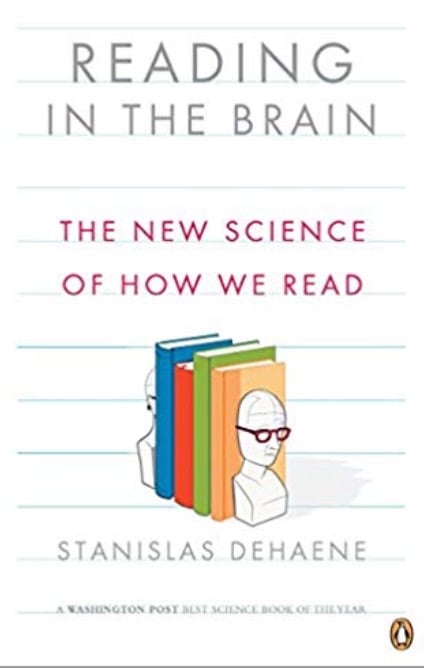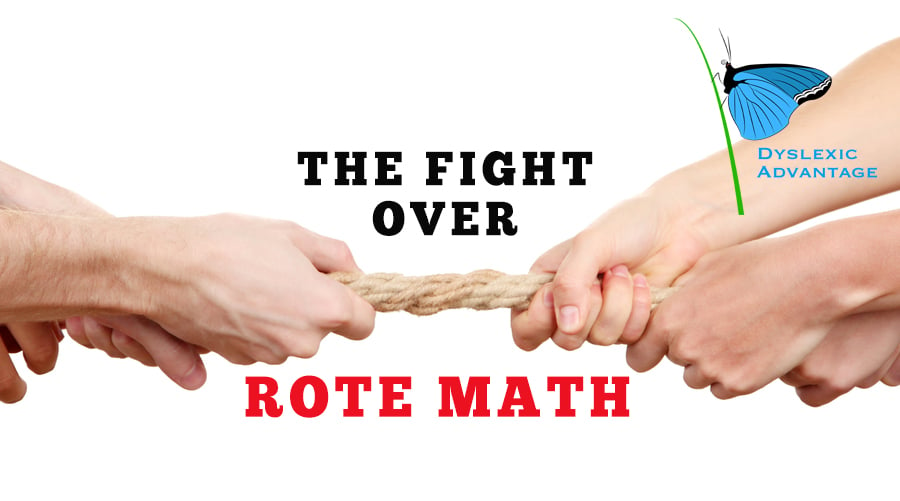From Jason Yeatman's laboratory at the University of Washington comes a deeper understanding of the visual challenges associated with dyslexia. Full report HERE. "It is well established that visual sensitivity to motion is correlated with reading skills. Yet, the...
[PREMIUM] Dyspraxia and Independence
Dyspraxia (DCD) has its impact in childhood, but recently researchers have been looking more into the challenges that young adults face in higher education, general life skills, and the workplace. Dr. Amanda Kirby, who we interviewed in the last issue, did her thesis work in the area of 16-25 year olds with dyspraxia. Based on her interviews for the project, over half reported some ongoing difficulties whether it was learning to drive a car, writing by hand, or organizing their household. From our perspective, the information should be seen as helpful information that recognizes extra challenges that a young person with dyspraxia might face as well as the benefits of extra supports as this young person heads into full adulthood and independence. Some Findings re: […]
[PREMIUM] The Truth About Lefties (Left-handed)
By the gestation age of 10 weeks, doctors can see that 85% of human fetuses prefer their right hand over their left. This preference (along with motor asymmetry) usually persists later in life The idea that dyslexics were often left or mixed-handed was first raised by Samuel Orton in 1925. Subsequent studies have suggested that left-handedness is indeed more common in dyslexics compared to controls, although a great deal of conflicting data exist, and a majority of dyslexics are right-dominant. Recently, researchers at Oxford performed genetic analysis on families with at least two sibilings who show symptoms of dyslexia. They found that the PCSK6 gene is associated with both dyslexia and mixed- or left-handedness. The PCSK6 gene is interesting because it interacts with another protein […]
RESEARCH: Dyslexic Brain – WRITING: More Connectivity, Not Less!
In research that was just published last month, investigators at the University of Washington were surprised to find when investigating pathways involved with writing - that brain connections of dyslexic subjects were more extensive and more far ranging than the...
Additional Resources from Premium Issue 26 [Premium]
Additional Premium Resources February 2018 Issue 26. You must be logged into your account to access: False Memories, Verbatim vs. Gist Recall, Persistence and Transcience of Memory, and Visual Perceptual and Handwriting Skills of Student with Dyspraxia (DCD). False memory for orthographically vs semantically similar words in adolescents with dyslexia. Verbatim and Gist Recall of Sentences by Dyslexia and Non-Dyslexic Adults The Persistence and Transience of Memory Visual perceptual and Handwriting Skills in Children with Developmental Coordination Disorder
Dyslexia at College: THE CHALLENGE OF WRITING [Premium]
As dyslexic college students are entering 2- and 4- year colleges in increasing numbers, questions arise as to the impact of dyslexia-related challenges on essay writing. The National Longitudinal Transition Study-2 had found that although a majority of LD students in high school requested accommodations (91%), only 17% requested accommodations in college. A problem with this situation is that the net result is that written work (especially timed written work) will typically substantially underestimate a student’s fund of knowledge and understanding. A recent study at Oxford Brookes University showed that college students with dyslexia matched their non-dyslexic peers in terms of word diversity, ideas, organization, sentence structure, and even grammar. The tasks in which they scored lower than their peers were so-called “low-level transcription skills” […]
Moving to learn: The UPSIDE to Fidgeting [Premium]
Researchers from Florida presented visually dramatic evidence of the difference in ADHD student hyperactivity dependng on the task at hand. 52 boys ages 8 to 12 were studied. 32 had ADHD and 30 served as controls. 44% of ADHD students had been prescribed stimulant medication, and these students had medicines held for at least 24 hours prior to the study. What you can see in the video is the dramatic difference in hyperactivity depending on whether the student was watching a mathematics instructional video or the pod racer scene from Star Wars. Perhaps not completely surprisingly, both ADHD and neurotypical boys showed better attention for the Star Wars video than the math instruction. Remember that ADHD is distinct from dyslexia and boys in general are […]
SCIENCE: THE BALANCING ACT OF LITERACY
Dr. Stanislaus Dehaene is a French researcher who has authored Reading and the Brain. He and his research team conducted some interesting investigations into Portuguese and Brazilian adults who they classified into 3 groups: unschooled adults (referred to as...
Let Them Listen – Audiobooks and Dyslexia [Premium]
Let Them Listen! “The objective of the present research study was to understand what benefits the use of audiobooks (both school-books and books of various genres, recorded on digital media) could bring to preadolescents and adolescents with developmental dyslexia. Two groups, each consisting of 20 adolescents, were compared. The experimental group used the audiobooks, while the control group continued to use normal books. After 5 months of experimental training, the experimental group showed a significant improvement in reading accuracy, with reduced unease and emotional–behavioural disorders, as well as an improvement in school performance and a greater motivation and involvement in school activities.” – Milani et al., Dyslexia (journal) It’s surprising how often we continue to hear that dyslexic students are denied the use of audiobooks […]
[PREMIUM] Latest Research: Dyslexia, Sequential Memory, and Seeing the Big Picture
“My mind doesn’t work like a train track. It’s more like a web page with lots of hyperlinks.” – dyslexic honors college student. It’s refreshing to see that more researchers take an interest on dyslexia beyond reading. In this recent paper from Belgium and Missouri, the challenges of remembering sequential information for dyslexics and non-dyslexics was reviewed. Both working memory and sequencing were examined. Working memory is a type of short-term memory necessary for keeping information ‘in mind.’ Sequencing is remembering the order that things are said. It’s activities such as this that that can make something like following classroom instructions or remembering computer passwords easy or hard. Several interesting observations were made from their review of the research literature: – Dyslexic children and adults tend […]
The Fight over Rote Math
If you think you've been hearing conflicting information about rote math in the news or from schools, you're absolutely right. The fight is spilling over to educational policymakers and makers of standardized tests such as the College Board. For dyslexic and...
Choosing the Right Reading Level Books for Students with Dyslexia [Premium]
It’s often told to parents that a “Five Finger Rule” can help you choose whether a book is at the right reading level for a student. The rule states that if a student misses five or more words, it may be too hard, no words and it might be too easy, and three words and it’s ‘just right’. The problem for dyslexic students is that the “Five Finger Rule” may prevent them accessing print information at their intellectual level and if reading aloud is the guide for the rule, then it’s possible they may never be granted access to higher level books even if they are university professors! In fact, pioneering work by Rosalie Fink (see research paper below for Premium members), showed that accomplished […]


![[PREMIUM] Dyspraxia and Independence](https://www.dyslexicadvantage.org/wp-content/uploads/2018/03/dyspraxia.jpg)
![[PREMIUM] The Truth About Lefties (Left-handed)](https://www.dyslexicadvantage.org/wp-content/uploads/2018/03/Screen-Shot-2019-08-30-at-10.53.35-AM.jpg)

![Additional Resources from Premium Issue 26 [Premium]](https://www.dyslexicadvantage.org/wp-content/uploads/2018/01/Screen-Shot-2019-08-30-at-8.25.32-PM.jpg)
![Dyslexia at College: THE CHALLENGE OF WRITING [Premium]](https://www.dyslexicadvantage.org/wp-content/uploads/2018/01/Screen-Shot-2019-08-30-at-8.43.51-PM.jpg)
![Moving to learn: The UPSIDE to Fidgeting [Premium]](https://www.dyslexicadvantage.org/wp-content/uploads/2018/01/shutterstock_331750409.jpg)

![Let Them Listen – Audiobooks and Dyslexia [Premium]](https://www.dyslexicadvantage.org/wp-content/uploads/2017/02/reading-audiobooks-our-shutterstock-scaled.jpg)
![[PREMIUM] Latest Research: Dyslexia, Sequential Memory, and Seeing the Big Picture](https://www.dyslexicadvantage.org/wp-content/uploads/2016/11/calendar-sequential-memory-shutterstock-400x250.jpg)

![Choosing the Right Reading Level Books for Students with Dyslexia [Premium]](https://www.dyslexicadvantage.org/wp-content/uploads/2016/10/reading-bulb-our-shutterstock-scaled.jpg)













